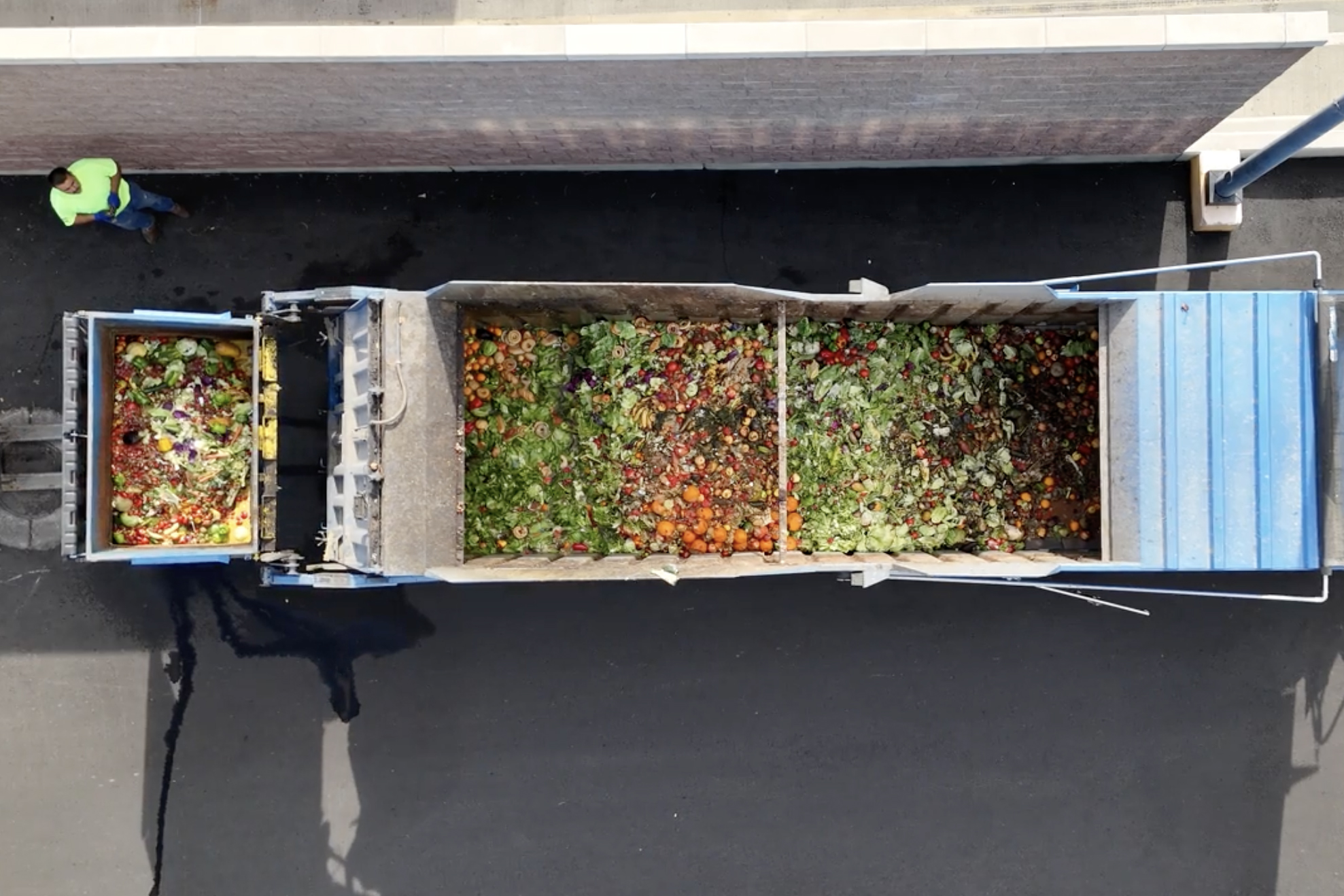
Denali says it recycled 7 million tons of organics in 2024, including 1 million tons of food waste, with new depackaging and Walmart compost sales. | Photo courtesy of Denali
Editor’s Note: Organics will be featured in sessions at the 2026 Resource Recycling Conference, Feb. 23-25 in San Diego, California.
Commercial food waste handler Denali said it recycled nearly 7 million tons of organic material in 2024, including more than 1 million tons of food waste.
In its recently released third annual sustainability report, the Arkansas-based company said its food waste recycling in 2024 was up by about 28% from 2023. Denali expects further growth in 2025 as it adds customers and expands its depackaging network.
The company’s 2024 Executive Sustainability Report provides a breakdown of the 7 million tons managed for recycling. According to Denali, totals included 1,087,096 tons of food waste, 4,305,457 tons of food processing residuals, 588,873 tons of plant and wood waste, 909,797 tons of biosolids and 53,009 tons of used cooking oil, equating to a total of 6,944,232 tons.
Denali, which partners with more than 8,000 customers nationwide, said the food waste category alone equated to more than 2 billion pounds (1 million tons). The company emphasized that its activities accounted for about 11% of the estimated 9 million tons of food recycled nationally in 2024, a figure based on data from ReFED, a nonprofit that tracks surplus food in the United States.
“Our 2024 Sustainability Report shows that food waste recycling is no longer a nice-to-have, it is becoming an industry standard and business imperative,” Denali CEO Todd Mathes said in a statement. He said the company’s work supports the circular economy by producing animal feed, soil amendments and compost that reduce greenhouse gas emissions.
The report highlighted where the 1 million tons of food waste went after collection. Denali said 49% became animal feed, 41% went to fertilizer, compost or soil amendments, 5% was directed to anaerobic digestion and 5% to biofuel production.
In addition to food waste, Denali said it transformed organic materials into 12.6 billion pounds (6.3 million tons) of agricultural inputs for farmland and livestock. The company said its processes created 1.2 million tons of compost, mulch and soil products and produced 12.1 million gallons of biodiesel from used cooking oil.
One of Denali’s most visible product lines is ReCirculate, a compost made from unsold food collected from grocers. The company said it launched ReCirculate in January 2025 at more than 100 Walmart locations across eight southern states, before expanding it during the spring planting season to 600 Walmart stores nationwide.
Denali also emphasized the scale of its recycling infrastructure. The report stated the company now operates 45 mechanical depackaging facilities across the United States, where machines separate food from packaging at scale. Denali said the system allows more food to be recycled while reducing labor needs for retailers. In 2024, the company began designing a mobile depackaging unit that launched in 2025, intended to provide rapid response capability during outages, disasters and other disruptions.
According to ReFED, the United States generated about 73.9 million tons of surplus food in 2023 across industry sectors. About 17.2 million tons came from retail, food service and other consumer-facing businesses, with only about 9 million tons recycled.
More stories about organics

